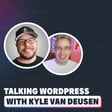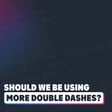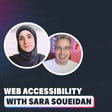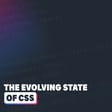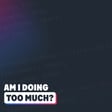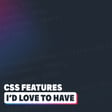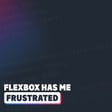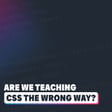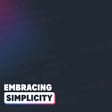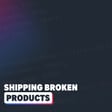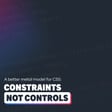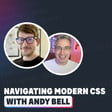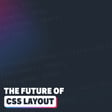Become a Creator today!Start creating today - Share your story with the world!
Start for free
00:00:00
00:00:01

How do you know you're ready to start applying for jobs?
This week is going to be a bit of a preview for a more in-depth video on my main channel that will be coming out in a few weeks because I’m in the middle of breaking down a few interviews that I’ve done to get some insight on helping people get their first jobs.
In the video I’ll be talking about everything from positioning yourself to help you land interviews, how to have a successful interview, and how you can sometimes even skip a few steps along the way, but for this edpisode focus on how do you even know that you’re ready to start applying for jobs.
Other awesome stuff around the web:
- Modular CSS and different ways to structure your stylesheets by Chris Ferdinandi
- The Three Cs: 🤝 Concatenate, 🗜️ Compress, 🗳️ Cache by Harry Roberts
- Why you suck at CSS by Zach Jensz
What I’ve been up to this week
- CSS position deep dive
- Use these instead of vh
- Combining transform with the individual rotate property makes things so much easier
Find me elsewhere on the web
Transcript
Introduction to Podcast
00:00:00
Speaker
Hello my friend and friends and welcome to my podcast General Musings. My name is Kevin and this podcast is the audio version of my weekly Sunday newsletter where I talk about whatever is front of mind for me in any given week, usually in some way that's related to frontend development, as well as share interesting sites and resources that I've come across in the past week as well as share what I've been up to as well.
Are You Ready to Apply for Jobs?
00:00:23
Speaker
This week is going to be a little bit of a preview for a more in-depth video that's going to be coming out on my main channel in probably a few weeks from now because I'm in the middle of breaking down a few interviews that I've done to get some insight on helping people get their first jobs. In the video I'll be talking about everything from positioning yourself to help you land interviews to how to have a successful interview and how you can sometimes even skip a few of the steps along the way.
00:00:50
Speaker
But
Timing Your Job Applications
00:00:51
Speaker
for this podcast, I want to focus on how do you even know when you're ready to start applying for jobs? I've noticed that there are a lot of people who fall into one of the two extremes when it comes to when they start applying for jobs.
00:01:06
Speaker
The first group feel like they're ready to start applying for jobs after about three months of learning through free resources. And the second group of people are ones who have way more than enough experience and skills to start applying for positions, but that don't realize it or don't feel like they're actually ready yet.
00:01:24
Speaker
and one of the people that I interviewed, Danny Thompson, has seen both sides of this as well. He attributes some of this first camp to all of those learned code in X days or X months things that you see out there, and I agree that many people out there are giving unrealistic timeframes for how fast you can learn something and then land a job.
00:01:43
Speaker
The other extreme, he was part of himself actually, with a major case of imposter syndrome and not believing that companies would want to hire him, which I can also totally relate to and have actually talked about in the past and I'll put a link to a video that I've done about imposter syndrome down below as well.
00:02:00
Speaker
And so with all of that, how can you know that you actually are ready to start applying for jobs?
Building Experience with Projects
00:02:06
Speaker
Well, Dani and Shashi Lo, the other person that I interviewed, both agreed that it's usually when you're able to create projects of a decent size on your own. Now, on your own doesn't really mean without any help at all, because you might have to look up how a specific API works, or you might still have to find a tutorial on how to implement a specific feature. And that's fine.
00:02:28
Speaker
The idea isn't that you're building things from scratch without referencing any other material because that's not realistic even once you have a job and even once you have lots of experience. The point is that you've moved past building a weather app or a to-do list by following along step by step with the tutorial and you're able to complete bigger scale projects and things where you can figure out how to do things on your own and of course then use resources that are out there to help you complete features that you're struggling with or to find solutions to problems you might be having.
00:02:58
Speaker
Once you've reached that step, it means you have the skills to work independently and be a problem solver, which is exactly what you need to actually do when you're working in the real world. And it also means that you have some projects that you can put in your portfolio. You probably don't want to include a to-do app or weather app that you followed along line by line with a tutorial in your portfolio, since you didn't actually build it, but use someone else's code to do it.
00:03:24
Speaker
But if you have something that you did yourself, that's a really nice piece to have in your portfolio. Because of course, when you have no real world work experience, having unique projects can go a really long way.
Optimizing CSS for Performance
00:03:35
Speaker
There are also a few other things that you can do to both gain some experience and help pad your resume as well, which I'll help set you up for success.
00:03:42
Speaker
with Danny and Shashi both mentioning hackathons as well as contributing to open source projects. These don't only help demonstrate the work that you've done on them, but they also demonstrate other skills as well that it's a little bit harder to have on personal projects, like being able to use Git as well as working with a team, which also means you know how to communicate and all of those types of things.
00:04:02
Speaker
So if you're in the camp of, I think I'm ready, but you're still following tutorials step by step, maybe give it a few more months at least. And if you're at the other end where you're making all sorts of cool stuff, but you don't believe you're ready yet, start getting yourself out there and applying for jobs.
00:04:19
Speaker
Now moving on to the other awesome stuff from around the web section of this podcast, Chris Ferdinandi recently put out an article looking at three approaches to organizing and loading in your CSS which included a bunch of modular files using the at import or using one big concatenated file which is probably the most common one that we see.
00:04:40
Speaker
When we first got HTTP2, one of the main benefits of it was that it allowed us to have multiple simultaneous downloads, all happening at once, rather than with HTTP1, where we'd have to download every file one at a time. But every test seems to show that one file still wins out. Now one interesting thing from the test that Chris did in his article though, is that the differences weren't really that big, especially compared to a similar test that Harry Roberts did.
00:05:06
Speaker
Harry was using Bootstrap which was much bigger than what Chris was testing with and it begs the question that maybe there's actually a crossing point somewhere where maybe instead of having a lot of individual files you have one main.css file and then maybe one to three smaller ones that might be more page specific and at that point we might cross over into where that actually is more performant.
00:05:29
Speaker
in this section of the podcast I'm looking off to other people's stuff and content so this isn't a test that I've done myself and I have no idea what the results would be but I think it'll earmark this as something that might be worth looking into a little bit more.
00:05:45
Speaker
One thing I will say though is if you're worried about optimizing your CSS, you're probably pretty far along in your journey.
Exploring CSS Fundamentals
00:05:51
Speaker
And if you're newer into the world of CSS and still struggling with it a little bit, I'd recommend giving the talk, Why You Suck at CSS by Zach Jens Alisten. Zach happens to be a mod at my Discord community, which you should totally join if you haven't already. And in his talk, he breaks down a lot of the fundamentals of CSS, including the parts that people often overlook, get wrong, or just don't know about. And you should definitely give it a watch.
00:06:15
Speaker
good job with it. And speaking of the fundamentals of CSS, this week I did put out a video covering one of those fundamentals with a deep dive into the position property. With over 700 videos on YouTube that are almost all about CSS, I've somehow never made one that looks at all of the CSS position values. I've compared relative and absolute in the past, I've done a few looks at sticky, but I felt like a deep dive video would be a good idea.
00:06:41
Speaker
There are already a handful of videos like this on YouTube already, but I find that they try and cover the information as quickly as possible, and they don't go into enough detail on how things like containing block work or some of the small gotchas that you can run into. And those quick ones tend to use random floating boxes for their examples, so I also tried to route this one into something that was a little bit more realistic as well.
00:07:02
Speaker
Another video that I put out looked at the newer viewport units, namely that we now have DVH, SVH, and LVH. And I did this because I see a lot of people still using VH and then complaining that it doesn't work the way they thought it would, especially with the issues that can pop up on mobile devices.
Conclusion and Resources
00:07:18
Speaker
So in this one I explore the new options that we have instead, and mostly come to the conclusion that SVH is probably what you want to use most of the time,
00:07:27
Speaker
though there are situations where DVH will probably be what you want as well. And I do want to mention that I didn't really talk about it in the video, but along with these you could also use DVB, SVB, and LVB, which are the logical property versions of the viewport height units, but looking at the block size instead of height. And that's it for this week! Depending on how you're consuming this, there is a podcast version and a YouTube version if you'd prefer one or the other.
00:07:52
Speaker
Or maybe you'd like a written version more, in which case there is a link in the description as well as links to everything else that I've mentioned along the way as well. Thank you so much for listening, and until next time don't forget to make your corner of the internet just a little bit more awesome.


